Insulin Resistance
How to submit an article:
- Registered users can submit any published journal article that has a unique DOI (Digital Object Identifier) name or link to Research Hub.
- For example, you can paste the full DOI link:
https://doi.org/10.1109/5.771073or just the DOI name:10.1109/5.771073into the field above and click submit. - The person who is first to submit a valid article to Research Hub will forever be credited for it, and every article submission earns you +6 Research Points.
Related Topics
Published research studies are articles that present the findings of original research that has undergone a peer-review process and has been made publicly available in scholarly journals, books or other media.
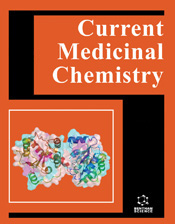
The Effects of Apple Cider Vinegar on Cardiometabolic Risk Factors: A Systematic Review and Meta-analysis of Clinical Trials
2023 Oct 11 Current Medicinal Chemistry Dadkhah Tehrani S, Keshani M, Rouhani MH, Moallem SA, Bagherniya M, Sahebkar A
Systematic Review Meta-Analysis Apple Cider Vinegar Blood Sugar Cholesterol HbA1CConsumption of apple cider vinegar significantly improves certain risk factors for cardiometabolic syndrome, notably fasting blood glucose, glycosylated hemoglobin, and total cholesterol.
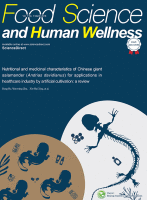
Polyphenols and pectin enriched golden kiwifruit (Actinidia chinensis) alleviates high fructose-induced glucolipid disorders and hepatic oxidative damage in rats: in association with improvement of fatty acids metabolism
2023 Sep Food Science and Human Wellness Alim A, Li T, Nisar T, Ali Z, Ren D, Liu Y, et al.
Overall, fleshes with pericarps from two A. chinensis (ACFP) employs more efficacious protective effects against HF-induced metabolic disorders and liver damage than pericarps from two A. chinensis (ACP) and pericarps from two A. chinensis (ACP).
Animal Study High Fructose Corn Syrup Kiwifruit
Theabrownin from Dark Tea Ameliorates Insulin Resistance via Attenuating Oxidative Stress and Modulating IRS-1/PI3K/Akt Pathway in HepG2 Cells
2023 Sep 05 Nutrients Liu J, Wang X, Zhu Y, Deng H, Huang X, Jayavanth P, et al.
Experimental Study Animal Study Theabrownin Oxidative Stress Insulin ResistanceTheabrownin from dark tea can potentially reverse insulin resistance and regulate glycolipid metabolism, with longer fermented samples showing greater effects.

The effects of propolis supplementation on high‐sensitivity C‐reactive protein, testosterone hormone, and metabolic profile in women with polycystic ovary syndrome: A randomized, triple‐blinded, placebo‐controlled clinical trial
2023 Sep 02 Phytotherapy Research Abbasi E, Bagherniya M, Soleimani D, Ghasemi‐Tehrani H, Abbaspour M, Clark CCT, et al.
Randomised Controlled TrialPropolis supplementation positively influences metabolic factors, testosterone levels, lipid profile, and body measurements in women suffering from polycystic ovarian syndrome.
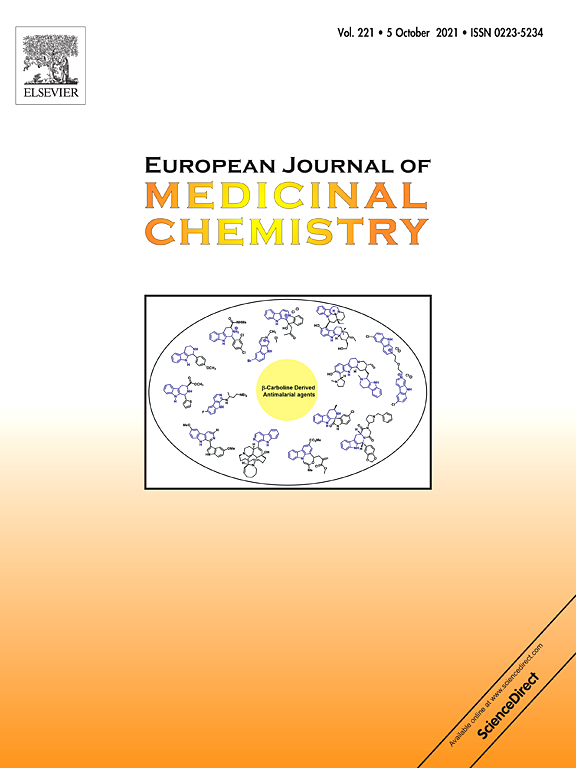
Effects and mechanism of action of Chrysanthemum morifolium (Jinsi Huangju) on hyperlipidemia and non-alcoholic fatty liver disease
2023 Jul European Journal of Medicinal Chemistry Li X, Li R, Wang X, Zhang X, Xiao Z, Wang H, et al.
Animal Study Chrysanthemum Cholesterol NAFLD Non-Alcoholic Fatty Liver DiseaseJin Si Huang Ju tea, a traditional Chinese beverage, contains compounds that potentially reduce lipids, mitigate insulin resistance and reduce liver inflammation in vitro.
Research insights are moderated by the Research Hub team and offer an at-a-glance overview of interesting research findings.

2023 Current Medicinal Chemistry
Consumption of apple cider vinegar significantly improves certain risk factors for cardiometabolic syndrome, notably fasting blood glucose, glycosylated hemoglobin, and total cholesterol.
Systematic Review Apple Cider Vinegar Blood Sugar Cholesterol HbA1C
The Effects of Apple Cider Vinegar on Cardiometabolic Risk Factors:
A Systematic Review and Meta-analysis of Clinical Trials
Dadkhah Tehrani S, Keshani M, Rouhani MH, Moallem SA, Bagherniya M, Sahebkar A

2023 Nutrients
Theabrownin from dark tea can potentially reverse insulin resistance and regulate glycolipid metabolism, with longer fermented samples showing greater effects.
Experimental Study Oxidative Stress Theabrownin
Theabrownin from Dark Tea Ameliorates Insulin Resistance via Attenuating Oxidative Stress and Modulating IRS-1/PI3K/Akt Pathway in HepG2 Cells
Liu J, Wang X, Zhu Y, Deng H, Huang X, Jayavanth P, et al.

2023 Phytotherapy Research
Propolis supplementation positively influences metabolic factors, testosterone levels, lipid profile, and body measurements in women suffering from polycystic ovarian syndrome.
Randomised Controlled Trial
The effects of propolis supplementation on high‐sensitivity C‐reactive protein, testosterone hormone, and metabolic profile in women with polycystic ovary syndrome: A randomized, triple‐blinded, placebo‐controlled clinical trial
Abbasi E, Bagherniya M, Soleimani D, Ghasemi‐Tehrani H, Abbaspour M, Clark CCT, et al.

2023 European Journal of Medicinal Chemistry
Jin Si Huang Ju tea, a traditional Chinese beverage, contains compounds that potentially reduce lipids, mitigate insulin resistance and reduce liver inflammation in vitro.
Animal Study Cholesterol Chrysanthemum NAFLD Non-Alcoholic Fatty Liver Disease
Effects and mechanism of action of Chrysanthemum morifolium (Jinsi Huangju) on hyperlipidemia and non-alcoholic fatty liver disease
Li X, Li R, Wang X, Zhang X, Xiao Z, Wang H, et al.

2022 Frontiers in Nutrition
In women with polycystic ovary syndrome, cinnamon reduced insulin resistance and testosterone levels similar to metformin, and ginger decreased follicle-stimulating and luteinizing hormones.
Randomised Controlled Trial Ceylon Cinnamon Cinnamon FSH Ginger LH
A comparison of the effects of cinnamon, ginger, and metformin consumption on metabolic health, anthropometric indices, and sexual hormone levels in women with poly cystic ovary syndrome: A randomized double-blinded placebo-controlled clinical trial
Dastgheib M, Barati-Boldaji R, Bahrampour N, Taheri R, Borghei M, Amooee S, et al.
Review Articles
Review articles summarise and critically evaluate the current state of research on a specific topic or field by synthesising multiple primary research studies.

The Effects of Apple Cider Vinegar on Cardiometabolic Risk Factors: A Systematic Review and Meta-analysis of Clinical Trials
2023 Oct 11 Current Medicinal Chemistry Dadkhah Tehrani S, Keshani M, Rouhani MH, Moallem SA, Bagherniya M, Sahebkar A
Systematic Review Meta-Analysis Apple Cider Vinegar Blood Sugar Cholesterol HbA1CConsumption of apple cider vinegar significantly improves certain risk factors for cardiometabolic syndrome, notably fasting blood glucose, glycosylated hemoglobin, and total cholesterol.

Acupuncture combined with metformin versus metformin alone to improve pregnancy rate in polycystic ovary syndrome: A systematic review and meta-analysis
2022 Aug 29 Frontiers in Endocrinology Chen X, Lan Y, Yang L, Liu Y, Li H, Zhu X, et al.
Systematic Review Meta-Analysis PCOS PregnancyPCOS patients suggests that combining acupuncture with metformin might enhance pregnancy and ovulation rates, as well as improve insulin resistance.

Chinese Herbal Medicine for Type 2 Diabetes Mellitus With Nonalcoholic Fatty Liver Disease: A Systematic Review and Meta-Analysis
2022 Jun 27 Frontiers in Pharmacology Peng S, Liu L, Xie Z, Zhang X, Xie C, Ye S, et al.
The CHM in combination with WM seems to be more beneficial in T2DM with NAFLD patients in improving lipid and glucose metabolism, liver function, and insulin resistance as well as improving overall efficiency and reducing body weight.
Systematic Review Meta-Analysis Chinese Herbal Medicine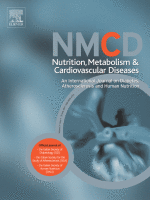
Effects of blueberry and cranberry on type 2 diabetes parameters in individuals with or without diabetes: A systematic review and meta-analysis of randomized clinical trials
2022 May Nutrition, Metabolism and Cardiovascular Diseases Delpino FM, Figueiredo LM, Gonçalves da Silva T, Flores TR
Meta-Analysis Systematic Review Blood Sugar Cranberry Type 2 DiabetesBlueberry and cranberry consumption significantly lowered fasting blood glucose and glycated hemoglobin levels in individuals with diabetes.

Consumption of sesame seeds and sesame products has favorable effects on blood glucose levels but not on insulin resistance: A systematic review and meta‐analysis of controlled clinical trials
2022 Jan 18 Phytotherapy Research Sohouli MH, Haghshenas N, Hernández‐Ruiz , Shidfar F
Systematic Review Meta-Analysis Blood Sugar SesameConsumption of sesame seeds and its products positively influences human glucose metabolism, potentially making it a beneficial addition to glucose-lowering diets.
Clinical Trials
Clinical trials are research studies that involve people and are conducted to evaluate the safety and efficacy of new treatments or interventions, such as drugs, medical devices, or behavioural therapies.

The effects of propolis supplementation on high‐sensitivity C‐reactive protein, testosterone hormone, and metabolic profile in women with polycystic ovary syndrome: A randomized, triple‐blinded, placebo‐controlled clinical trial
2023 Sep 02 Phytotherapy Research Abbasi E, Bagherniya M, Soleimani D, Ghasemi‐Tehrani H, Abbaspour M, Clark CCT, et al.
Randomised Controlled TrialPropolis supplementation positively influences metabolic factors, testosterone levels, lipid profile, and body measurements in women suffering from polycystic ovarian syndrome.

A comparison of the effects of cinnamon, ginger, and metformin consumption on metabolic health, anthropometric indices, and sexual hormone levels in women with poly cystic ovary syndrome: A randomized double-blinded placebo-controlled clinical trial
2022 Nov 29 Frontiers in Nutrition Dastgheib M, Barati-Boldaji R, Bahrampour N, Taheri R, Borghei M, Amooee S, et al.
Randomised Controlled Trial Cinnamon Testosterone Metabolic Syndrome FSH Ginger PCOS Insulin Resistance Metformin Ceylon Cinnamon LHIn women with polycystic ovary syndrome, cinnamon reduced insulin resistance and testosterone levels similar to metformin, and ginger decreased follicle-stimulating and luteinizing hormones.

Effects of crocin supplementation on inflammatory markers, lipid profiles, insulin and cardioprotective indices in women with PCOS: A randomized, double‐blind, placebo‐controlled trial
2022 Apr 26 Phytotherapy Research Rahimi G, Shams S, Aslani MR
Crocin intervention (15 mg, twice daily) significantly increased high-density lipoprotein cholesterol, suppressed the increase in low-density lipoprotein cholesterol, triglycerides, and total cholesterol levels, and improved insulin and cardioprotective indices in women with PCOS. Additionally, crocin demonstrated protective effects against the increase in inflammatory markers (IL-6 and TNF-α) observed in the placebo group. The findings suggest that crocin supplementation may be beneficial in the therapeutic management of PCOS.
Clinical Study Randomised Controlled Trial PCOS Crocin
The effect of pomegranate extract on anthropometric indices, serum lipids, glycemic indicators, and blood pressure in patients with nonalcoholic fatty liver disease: A randomized double‐blind clinical trial
2021 Sep 08 Phytotherapy Research Goodarzi R, Jafarirad S, Mohammadtaghvaei N, Dastoorpoor M, Alavinejad P
Randomised Controlled Trial Obesity Pomegranate HDL-C Blood Sugar Triglyceride Insulin Resistance Cholesterol Diastolic Blood PressurePomegranate extract supplement shows potential in improving glycemic indicators, serum lipids, anthropometrics, and blood pressure in patients with nonalcoholic fatty liver disease.

Efficacy of Hijamat (wet cupping therapy) in Iranian patients with nonalcoholic fatty liver disease: a controlled clinical trial
2020 Apr 9 Turkish Journal of Medical Sciences Bashiri H, Bozorgomid A, Shojaeimotlagh V.
Randomised Controlled Trial FerritinStudy Protocols
Published study protocols are detailed plans that outline the objectives, methodology, statistical analyses, and organisation of a research study that have been made publicly available for others to review and use as a reference.
Presentation Slides

Systematic Review
Consumption of apple cider vinegar significantly improves certain risk factors for cardiometabolic syndrome, notably fasting blood glucose, glycosylated hemoglobin, and total cholesterol.
Dadkhah Tehrani S, Keshani M, Rouhani MH, Moallem SA, Bagherniya M, Sahebkar A

Experimental Study
Theabrownin from dark tea can potentially reverse insulin resistance and regulate glycolipid metabolism, with longer fermented samples showing greater effects.
Liu J, Wang X, Zhu Y, Deng H, Huang X, Jayavanth P, Xiao Y, Wu J, Jiao R

Randomised Controlled Trial
Propolis supplementation positively influences metabolic factors, testosterone levels, lipid profile, and body measurements in women suffering from polycystic ovarian syndrome.
Abbasi E, Bagherniya M, Soleimani D, Ghasemi‐Tehrani H, Abbaspour M, Clark CCT, Askari G

Animal Study
Jin Si Huang Ju tea, a traditional Chinese beverage, contains compounds that potentially reduce lipids, mitigate insulin resistance and reduce liver inflammation in vitro.
Li X, Li R, Wang X, Zhang X, Xiao Z, Wang H, Sun W, Yang H, Yu P, Hu Q, Guo Q, Sun H

Randomised Controlled Trial
In women with polycystic ovary syndrome, cinnamon reduced insulin resistance and testosterone levels similar to metformin, and ginger decreased follicle-stimulating and luteinizing hormones.
Dastgheib M, Barati-Boldaji R, Bahrampour N, Taheri R, Borghei M, Amooee S, Mohammadi-Sartang M, Wong A, Babajafari S, Mazloomi SM

Systematic Review
PCOS patients suggests that combining acupuncture with metformin might enhance pregnancy and ovulation rates, as well as improve insulin resistance.
Chen X, Lan Y, Yang L, Liu Y, Li H, Zhu X, Zhao Y, Long C, Wang M, Xie Q, Li Z, Wu J

Meta-Analysis
Blueberry and cranberry consumption significantly lowered fasting blood glucose and glycated hemoglobin levels in individuals with diabetes.
Delpino FM, Figueiredo LM, Gonçalves da Silva T, Flores TR

Systematic Review
Consumption of sesame seeds and its products positively influences human glucose metabolism, potentially making it a beneficial addition to glucose-lowering diets.
Sohouli MH, Haghshenas N, Hernández‐Ruiz , Shidfar F

Review Article
Recent findings suggest that the molecular background to the development of insulin resistance may be related to vitamin D deficiency.
Contreras-Bolívar V, García-Fontana B, García-Fontana C, Muñoz-Torres M

Animal Study
Adzuki beans, when added to a high-fat diet, lessen obesity, improve liver function, enhance insulin sensitivity, and balance gut microbiota.
Zhao Q, Hou D, Fu Y, Xue Y, Guan X, Shen Q

Randomised Controlled Trial
Pomegranate extract supplement shows potential in improving glycemic indicators, serum lipids, anthropometrics, and blood pressure in patients with nonalcoholic fatty liver disease.
Goodarzi R, Jafarirad S, Mohammadtaghvaei N, Dastoorpoor M, Alavinejad P

Review Article
Citrus species are valuable natural sources of flavonoids and a promising source for future treatments aimed at the prevention and management of diabetes and related complications.
Gandhi GR, Vasconcelos ABS, Wu DT, Li HB, Antony PJ, Li H, Geng F, Gurgel RQ, Narain N, Gan RY.
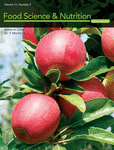
Randomised Controlled Trial
Pomegranate juice can reduce melatonin, increase insulin levels, and improve insulin resistance in individuals with impaired fasting glucose.
Banihani SA, Fashtaky RA, Makahleh SM, El‐Akawi ZJ, Khabour OF, Saadeh NA

Review Article
Cocoa and cocoa products, enriched with polyphenols, have potential health benefits including enhanced vascular function, cancer prevention, and improvement in learning and memory.
E S, Panjikkaran ST, L SC, R RP

Randomised Controlled Trial
Synbiotic pomegranate juice (containing inulin and lactobacillus) can improve insulin resistance, reduce testosterone level, and aid weight loss in women suffering from Polycystic Ovarian Syndrome.
Esmaeilinezhad Z, Babajafari S, Sohrabi Z, Eskandari MH, Amooee S, Barati-Boldaji R

Systematic Review
Berberine's potential similarity to metformin in addressing glycolipid metabolism and insulin sensitivity, and exploring promising combinations involving berberine, metformin, and cyproterone acetate for treating polycystic ovary syndrome with insulin resistance.
Meng-Fei Li, Xiao-Meng Zhou, Xue-Lian Li
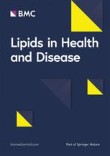
Randomised Controlled Trial
A sardine-enriched diet may have beneficial effects on cardiovascular risk and alters gut microbiota composition in patients with type 2 diabetes.
Balfegó M, Canivell S, Hanzu FA, Sala-Vila A, Martínez-Medina M, Murillo S, Mur T, Ruano EG, Linares F, Porras N, Valladares S, Fontalba M, Roura E, Novials A, Hernández C, Aranda G, Sisó-Almirall A, Rojo-Martínez G, Simó R, Gomis R
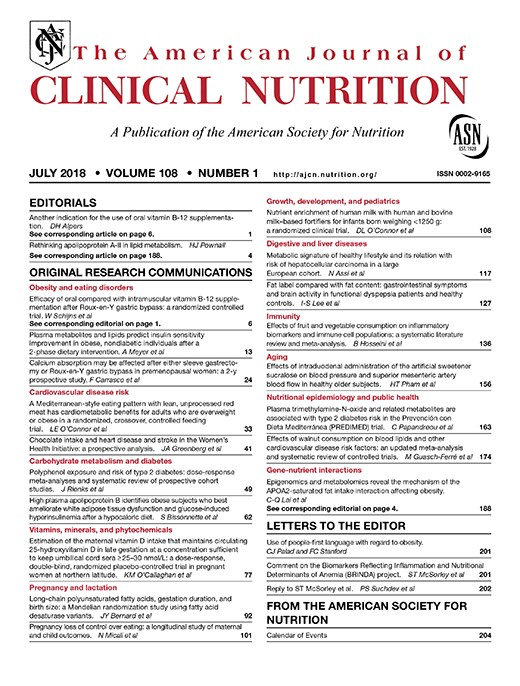
Systematic Review
Regular chocolate or cocoa consumption, rich in flavan-3-ols, has been associated with improved insulin resistance and blood vessel function, suggesting potential cardiovascular benefits.
Hooper L, Kay C, Abdelhamid A, Kroon PA, Cohn JS, Rimm EB, Cassidy A
Executive Summary
Write an executive summary in the form of a blog article on the topic of "Research into Chinese medicine treatment for Insulin Resistance" summarising the research below and using language that can be easily understood by patients and avoiding medical jargon using a professional and caring tone of voice.
Write an executive summary in the form of a blog article on the topic of "Researched Chinese medicine treatments for Insulin Resistance" summarising the research below in an objective and easy to understand way, and using language that can be easily understood by patients. Group the article into Chinese medicine treatments first, followed by nutrition and other treatments. Avoid using medical jargon and use a professional and caring tone of voice.
Write me a concise but easy to understand executive summary on the topic of "Chinese medicine treatments for Insulin Resistance" based on the following research that I will give you. Your summary should be 2 paragraphs long in Australian English spelling and include references to the studies.
A Systematic Review published in 2023 in the journal Current Medicinal Chemistry found that Consumption of apple cider vinegar significantly improves certain risk factors for cardiometabolic syndrome, notably fasting blood glucose, glycosylated hemoglobin, and total cholesterol. This study applied a systematic review and meta-analysis of clinical trials found in PubMed, Scopus, and ISI Web of Science databases. In this process, trials evaluating the effects of apple cider vinegar consumption on cardiometabolic syndrome risk factors were sought. In total, 25 clinical trials were included in the study, these trials encompassed 1320 adult participants. The consumed apple cider vinegar led to a general improvement in fasting blood glucose, glycosylated hemoglobin, and total cholesterol. However, for body mass index, insulin resistance, serum insulin, triglycerides, low-density lipoprotein cholesterol, and high-density lipoprotein cholesterol, no significant results were observed. Conducting a subgroup analysis, the study identified a significant decrease in fasting blood glucose, glycosylated hemoglobin, total cholesterol, and triglycerides in diabetic patients. Further, it was observed that the apple cider vinegar significantly reduced fasting blood glucose levels regardless of the duration of administration and also decreased triglycerides concentration when consumed for 12 weeks or more.
A Experimental Study published in 2023 in the journal Nutrients found that Theabrownin from dark tea can potentially reverse insulin resistance and regulate glycolipid metabolism, with longer fermented samples showing greater effects. The study focused on TB1 and TB2, theabrownin isolated from dark tea. TB1 was fermented for 7 days whereas TB2 was fermented for 14 days. The research used HepG2 cells for the experiment. Various techniques such as Western blot and real-time PCR experiments were employed to measure the effects of TB on oxidative stress, mitochondrial function, and glycolipid regulation, which are key components of insulin resistance. The results suggest TB can significantly improve oxidative stress conditions by enhancing mitochondrial function. TB unveiled its potential in improving glycogen synthesis and glucose consumption. Furthermore, TB was found to inhibit harmful processes like gluconeogenesis and fatty acid synthesis via the regulation of various enzymes and proteins. The researchers investigated this by focusing on a signaling pathway (IRS-1/PI3K/Akt). Verification of the effects of TB on glycolipid metabolism was done using a PI3K inhibitor, highlighting a positive correlation between PI3K activation and TB's activity. Notably, the experiment showed TB2, which was fermented longer, was more effective in improving insulin resistance.
A Randomised Controlled Trial published in 2023 in the journal Phytotherapy Research found that Propolis supplementation positively influences metabolic factors, testosterone levels, lipid profile, and body measurements in women suffering from polycystic ovarian syndrome. The research was a triple-blind controlled trial constructed to consider the effects of propolis on women with polycystic ovarian syndrome. The participants, who were patients from a gynecology clinic, were randomly divided, following a structured randomization procedure, into two groups. One group was assigned to consume propolis tablets twice daily, amounting to 500 mg of propolis each day, while the other group received placebo tablets that were identical in appearance. This trial took place over the course of 12 weeks in the timeframe of 2021 to 2022. Information was gathered with the help of a demographic questionnaire, blood samples from the participants, and a checklist that helped record the parameters measured. In discussing results, it was noted that several key factors showed significant difference between the propolis and placebo groups. Hip circumference, fasting insulin, insulin resistance, testosterone levels, and low-density to high-density lipoprotein ratios were all seen to drop considerably in the group that received propolis, showing the potential benefits of this natural supplement. Despite an initial decrease in fasting blood sugar levels in the propolis group, the significance of this change was reduced after adjusting for other factors. Conclusively, the evidence points towards notable benefits of propolis, providing support for its usage in managing polycystic ovarian syndrome.
A Animal Study published in 2023 in the journal European Journal of Medicinal Chemistry found that Jin Si Huang Ju tea, a traditional Chinese beverage, contains compounds that potentially reduce lipids, mitigate insulin resistance and reduce liver inflammation in vitro. The researchers identified 14 compounds in the Jinsi Huangju tea using different spectroscopic techniques, 11 of which had not been previously identified in this plant. Two of these compounds, apigenin-7-O-6″-malonylglucoside and luteolin-7-O-6″-malonylglucoside, were synthesized for the first time with a yield of 1.2% over 5 steps. In the findings, the natural compound apigenin-7-O-6″-malonylglucoside was found to inhibit the function of pancreatic lipase, reduce cellular lipid contents, and attenuate insulin resistance when tested in vitro. It was also observed to restore lipid and inflammatory profiles in plasma and the liver, as well as reduce hepatic steatosis in non-alcoholic fatty liver disease (NAFLD) mouse models. Thus, Jinsi Huangju and its active components are strong candidates for the development of drugs or functional foods that could provide a therapeutic strategy for hyperlipidaemia and NAFLD.
A Randomised Controlled Trial published in 2022 in the journal Frontiers in Nutrition found that In women with polycystic ovary syndrome, cinnamon reduced insulin resistance and testosterone levels similar to metformin, and ginger decreased follicle-stimulating and luteinizing hormones. In the methodology of the study, 100 women diagnosed with polycystic ovary syndrome were divided into four groups. Each group received a different treatment: cinnamon, ginger, metformin, or placebo. The dosage for these treatments was 500 mg, three times a day, administered over a period of 8 weeks. The participants' sex hormones, weight revelations, along with glycemic and lipid markers were monitored before and after this period. Several participants were disqualified because of unspecified factors, resulting in a final sample size of 83. In terms of results, all groups saw a decrease in weight and body mass index. The metformin and cinnamon groups specifically had notably decreases in their insulin resistance, meaning that these treatments were effective in improving metabolic health. Additionally, the ginger group experienced a reduction in follicle-stimulating hormone and luteinizing hormone levels unlike the other groups. Testosterone levels were lowered in the metformin and cinnamon groups, but no significant changes in dehydroepiandrosterone were observed in any of the groups. These results indicate the potential use of cinnamon and ginger as alternative treatments in managing polycystic ovary syndrome.
A Systematic Review published in 2022 in the journal Frontiers in Endocrinology found that PCOS patients suggests that combining acupuncture with metformin might enhance pregnancy and ovulation rates, as well as improve insulin resistance. The study initially screened 330 relevant articles, eventually including nine randomized controlled trials (RCTs) that met the inclusion criteria. These trials encompassed 1,159 patients with PCOS who underwent acupuncture or acupuncture combined with metformin treatment. Using the GRADE method, a "Summary of Findings" table was employed to evaluate the quality of evidence for various outcome measures. The main results indicated that acupuncture combined with metformin exhibited superiority over metformin alone in terms of pregnancy rate, ovulation rate, and HOMA-IR (insulin resistance). Subgroup analysis highlighted that diagnostic criteria and random methods contributed to heterogeneity in results. However, the evidence's quality was predominantly low or very low due to study limitations, inconsistencies, and imprecisions. The intervention measures, such as acupuncture methods and treatment parameters, varied substantially among studies. Challenges in contacting original authors and incomplete information posed further limitations. The study suggested potential improvements in pregnancy rate, ovulation rate, and HOMA-IR with acupuncture combined with metformin, but these findings were subject to uncertainties related to diagnostic criteria and overall evidence quality. Consequently, the conclusive efficacy of acupuncture combined with metformin for treating PCOS remains uncertain due to the dearth of high-quality research. The study called for well-designed and well-executed RCTs to address this question under standardized diagnostic criteria and treatment protocols for acupuncture and metformin.
A Meta-Analysis published in 2022 in the journal Nutrition, Metabolism and Cardiovascular Diseases found that Blueberry and cranberry consumption significantly lowered fasting blood glucose and glycated hemoglobin levels in individuals with diabetes. The research methodology involved a systematic literature review and meta-analysis using publications sourced from seven different databases (PubMed, LILACS, Scielo, Scopus, Web of Science, Cochrane, and Embase) up until May 2021. The researchers included randomized clinical trials where the effects of blueberry or cranberry on parameters linked to type 2 diabetes such as fasting blood glucose, insulin resistance, and glycated hemoglobin were compared. The quality of these studies was evaluated using the Cochrane scale while the Egger test was utilized to assess publication bias and the meta-regression evaluated the estimated effect sizes with potential moderator variables. Following an initial identification of 2034 studies, 39 full-text studies were read, out of which 22 met the criteria to be included in the final meta-analysis. The findings showed that individuals with diabetes experienced significant reductions in fasting blood glucose and glycated hemoglobin readings following the consumption of blueberries or cranberries. However, no significant effects were seen on insulin resistance. While the results were not universally significant when it came to the general population, an exception was found in the sensitivity analysis for fasting blood glucose.
A Systematic Review published in 2022 in the journal Phytotherapy Research found that Consumption of sesame seeds and its products positively influences human glucose metabolism, potentially making it a beneficial addition to glucose-lowering diets. The methodology involved conducting a systematic review and meta-analysis on the effect of sesame seeds consumption on blood glucose and insulin resistance in adults. The researchers gathered data from recognized academic resources like PubMed/MEDLINE, SCOPUS, Web of Science, Google Scholar, and EMBASE, which included controlled clinical trials up until February 2021. The sesame products in these trials ranged from sesame oil, sesamin, and tahini, with the intervention period lasting from 45 days to 9 weeks. The results illustrate that the intake of sesame and its products significantly improved fasting blood glucose and Hemoglobin A1c levels. Nonetheless, the results regarding fasting serum insulin and the homeostatic model assessment for insulin resistance were not found to have any significant relation. Hence, the consumption of sesame might be a beneficial supplement for managing glucose levels in humans.
A Review Article published in 2021 in the journal Nutrients found that Recent findings suggest that the molecular background to the development of insulin resistance may be related to vitamin D deficiency. Taken together, the results of basic and clinical studies reveal that vitamin D deficiency may be a key factor triggering the insulin resistance. In this review, a large body of findings on vitamin D and its association with disorders related to insulin resistance such as obesity, T2D, MS, and PCOS has been analyzed, with controversial results.
A Animal Study published in 2021 in the journal Nutrients found that Adzuki beans, when added to a high-fat diet, lessen obesity, improve liver function, enhance insulin sensitivity, and balance gut microbiota. In the experiment, mice were placed on one of three diets for 12 weeks: a low-fat diet, a high-fat diet, or a high-fat diet supplemented with 15% adzuki beans. The study observed and tested for changes related to obesity, lipid accumulation, serum lipid and lipopolysaccharide levels, liver function, hepatic steatosis, glucose homeostasis, insulin sensitivity, and gut microbiota imbalances. Through a process called PICRUSt2 analysis, the researchers were then able to draw potential associations between changes in the gut microbiota and the metabolism of various substances. In the discussion of the results, the supplementation of adzuki beans to a high-fat diet had a significant impact. Obesity and lipid accumulation were visibly reduced, as were negative impacts on liver function and unhealthy levels of serum lipids and lipopolysaccharides. Notably, glucose homeostasis was improved through an increase in insulin sensitivity. The imbalances in gut microbiota, typically seen in a high-fat diet, were significantly reversed through adzuki bean supplementation. High-fat diet dependent taxa returned to a more normal status, which in turn suggested associations with the metabolism of carbohydrates, lipids, sulfur, and two types of amino acids.
A Randomised Controlled Trial published in 2021 in the journal Phytotherapy Research found that Pomegranate extract supplement shows potential in improving glycemic indicators, serum lipids, anthropometrics, and blood pressure in patients with nonalcoholic fatty liver disease. The study involved 44 patients who had been diagnosed with nonalcoholic fatty liver disease. These individuals were randomly assigned to two groups, with one group receiving two pomegranate extract tablets daily over a period of 12 weeks, and the other a placebo. The researchers measured anthropometric values, serum lipid levels, blood pressure, and glycemic indicators before and after the intervention. In their analysis of the outcomes, the researchers found that the group which received the pomegranate extract showed reductions in total cholesterol, triglyceride levels, the ratio of low-density lipoprotein cholesterol to high-density lipoprotein cholesterol, fasting blood sugar, resistance to insulin, diastolic blood pressure, weight, body mass index, and waist circumference when compared to the placebo group. Additionally, an increase in serum high-density lipoprotein cholesterol was observed within the pomegranate group, indicating the potential utility of this supplement in a treatment regimen for this condition.
A Review Article published in 2020 in the journal Nutrients found that Citrus species are valuable natural sources of flavonoids and a promising source for future treatments aimed at the prevention and management of diabetes and related complications. To the best of our knowledge, this is the first review that summarizes the effects of major citrus flavonoids on the vital physiological pathways and biochemical parameters related to diabetes. Citrus flavonoids regulated biomarkers of glycemic control, lipid profiles, renal function, hepatic enzymes, and antioxidant enzymes, and modulated signaling pathways related to glucose uptake and insulin sensitivity that are involved in the pathogenesis of diabetes and its related complications. Citrus flavonoids, therefore, are promising antidiabetic candidates, while their antidiabetic effects remain to be verified in forthcoming human studies.
A Randomised Controlled Trial published in 2019 in the journal Food Science & Nutrition found that Pomegranate juice can reduce melatonin, increase insulin levels, and improve insulin resistance in individuals with impaired fasting glucose. This study was a randomized clinical trial with 28 participants who had been diagnosed with impaired fasting glucose. They were selected from Irbid Central Laboratory and the Diabetes Clinic of the University Hospital at Jordan University of Science and Technology. Each participant received a dose of fresh pomegranate juice calculated at 1.5 ml per kilogram of their body weight. Blood samples for each participant were taken prior to, 1 hour and 3 hours after ingesting the juice. The studied parameters were melatonin, insulin, and glucose levels. In terms of results, it was found that people with impaired fasting glucose, contrary to those who were healthy, showed a significant decrease in blood glucose levels 3 hours after consuming the juice. Insulin resistance also improved significantly within the same time frame for these individuals. Furthermore, melatonin levels decreased, and insulin levels increased noticeably among both, healthy as well as those with impaired fasting glucose, an hour after the juice intake. These results suggest that fresh pomegranate juice can positively affect hormones related to diabetes and sleep.
A Review Article published in 2019 in the journal Agricultural Reviews found that Cocoa and cocoa products, enriched with polyphenols, have potential health benefits including enhanced vascular function, cancer prevention, and improvement in learning and memory. The authors carried out an extensive review of the nutritional profile of cocoa beans, focusing on the high content of carbohydrates, protein, fat, fiber, and minerals. Significantly, they pinpointed bioactive compounds, especially polyphenols (flavonoids and nonflavonoids), as key constituents, attributing to cocoa its antioxidant and anti-inflammatory properties. Emphasis was placed on the consumption of flavonoid-rich chocolates and its potential health benefits. The findings of the research underscore multiple health benefits from cocoa's flavonoids. These include an improvement in peripheral vascular function and a suppression of molecular processes linked with cancer. Notably, the flavonoids have been observed to heighten insulin sensitivity and reduce oxidative damage. They also seem to concentrate in brain areas associated with learning and memory. These insights collectively support the integration of cocoa and its products as a part of a nutritious and balanced diet.
A Randomised Controlled Trial published in 2019 in the journal Nutrition, Metabolism and Cardiovascular Diseases found that Synbiotic pomegranate juice (containing inulin and lactobacillus) can improve insulin resistance, reduce testosterone level, and aid weight loss in women suffering from Polycystic Ovarian Syndrome. In this randomized, controlled, triple-blind, parallel trial study, patients diagnosed with Polycystic Ovarian Syndrome (92 in total) were grouped into four groups of 23. The three treatment groups received 2 litres of synbiotic pomegranate juice (SPJ), pomegranate juice (PJ), and a synbiotic beverage (SB) on a weekly basis. The control group was given a placebo beverage weekly. The primary focus of this trial was to observe any changes in insulin resistance, with secondary outcomes including fasting blood sugar, insulin sensitivity, testosterone, luteinizing hormone, follicle-stimulating hormone, body mass index, and waist and hip circumference comparisons, from baseline to the end of the trial. After finishing the trial, analyses of the remaining 86 patients indicated noticeable improvement in insulin resistance, mainly in the SPJ and SB groups. The same groups also showed a significant increase in insulin sensitivity and an overall decrease in insulin. The SPJ and SB groups also saw significant reductions in body mass index, weight, and waist circumference. Lastly, there was a noteworthy decrease in testosterone levels within the SPJ and SB groups. However, no significant changes were found in fasting plasma glucose, luteinizing hormone, and follicle-stimulating hormone in any of the groups.
A Systematic Review published in 2018 in the journal Evidence-Based Complementary and Alternative Medicine found that Berberine's potential similarity to metformin in addressing glycolipid metabolism and insulin sensitivity, and exploring promising combinations involving berberine, metformin, and cyproterone acetate for treating polycystic ovary syndrome with insulin resistance. The passage outlines the outcomes of a comprehensive study conducted in the context of treating polycystic ovary syndrome with insulin resistance (PCOS-IR). The study involved screening 225 potential studies, ultimately selecting 9 trials from 10 studies for meta-analysis. The quality assessment of included trials is summarized in Table 2. Notably, the comparisons between berberine (BBR) and metformin (MET), as well as between MET+BBR and MET alone, demonstrated intriguing results. The former comparison showed no significant differences in various parameters, while the latter revealed a combined treatment effect involving reductions in luteinizing hormone (LH), LH/follicle-stimulating hormone (FSH) ratio, and testosterone. Another significant focus was the comparison between combining cyproterone acetate (CPA) with BBR versus CPA alone, showing a more favorable impact on parameters like waist-hip ratio, insulin resistance, and lipid profiles in the CPA+BBR group. The discussion delved into BBR's effects on glycolipid metabolism, insulin resistance, and reproductive endocrine conditions. It also explored the potential benefits of combining BBR with Chinese herbs and highlighted BBR's relatively positive safety profile. In conclusion, the study suggested BBR's promise in treating PCOS-IR, but underscored the necessity for further well-designed trials to substantiate its effects and mechanisms in various treatment contexts.
A Randomised Controlled Trial published in 2016 in the journal Lipids in Health and Disease found that A sardine-enriched diet may have beneficial effects on cardiovascular risk and alters gut microbiota composition in patients with type 2 diabetes. In the study, 35 patients who were recently diagnosed with type 2 diabetes were divided into two random groups. One was set to follow a standard diet recommended for diabetes (control group), and the other followed similar guidance but included 100 grams of sardines in their diet five days a week (sardine group) for a duration of six months. Scientists measured their anthropometric and dietary information, fasting glycated hemoglobin, glucose, insulin, adiponectin, inflammatory markers, erythrocyte membrane fatty acid composition and specific bacterial strains before and after the dietary intervention. In the conclusion, there was no significant difference in glycemic control between the two groups by the end of the course. However, both sets of patients recorded a decrease in plasma insulin. Most notably, the sardine group also saw an increase in adiponectin levels and the omega-3 index, while decreasing the Firmicutes/Bacteroidetes ratio in gut microbiota composition. It advanced the hypothesis, even though the sardine-enriched diet did not significantly alter glycemic control, it could potentially be beneficial in managing cardiovascular risk in type 2 diabetes patients.
A Systematic Review published in 2012 in the journal The American Journal of Clinical Nutrition found that Regular chocolate or cocoa consumption, rich in flavan-3-ols, has been associated with improved insulin resistance and blood vessel function, suggesting potential cardiovascular benefits. The study systematically reviewed 42 randomized controlled trials involving 1297 participants to investigate the impact of chocolate, cocoa, and flavan-3-ols on major cardiovascular disease risk factors. Utilizing a comprehensive search across multiple databases, the researchers conducted meta-analyses, assessing acute and short-term chronic interventions. Results revealed consistent improvements, including reduced insulin resistance (HOMA-IR), enhanced flow-mediated dilatation (FMD), and favorable effects on blood pressure and cholesterol levels. The findings indicate promising cardiovascular benefits associated with chocolate or cocoa consumption. Notably, the study highlights improvements in insulin sensitivity, blood vessel function, and blood pressure, emphasizing the potential positive impact of flavan-3-ols found in these products.
Moderation Tools
Topic
Sign In
Users not signed in are limited to viewing the 5 most recent items of content.

Studies have shown a strong relationship between the level of ferritin and the severity of NAFLD. —Jinnan C 3 Oct 2021